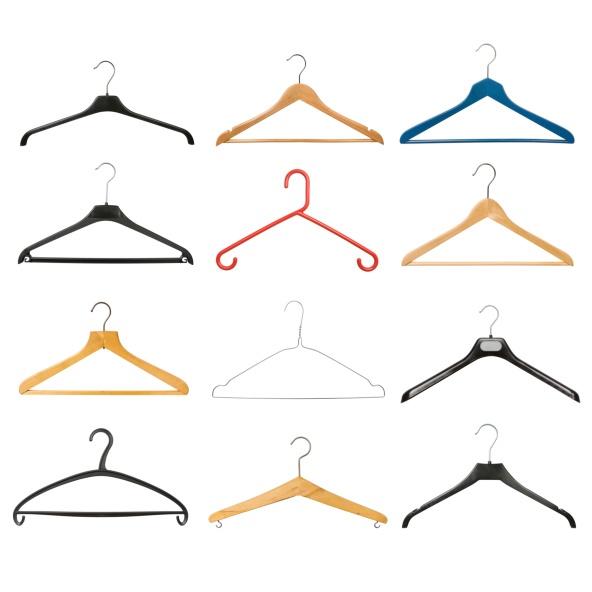
Credit: ThinkStock
How we dress ourselves—when we're afforded the resources to make mostly autonomous choices about how we look—is a statement of intent to those who would subject you to their gaze. This includes ourselves.
When we dress in front of a mirror or idly leer at our reflection in the BART window, we are talking to ourselves, silently confirming, denying and appraising—though I've been getting better at saying nice things about myself out loud, and I hope you are too.
It can feel like too much: We often find ourselves trying to maintain multiple conversations at once. With one corner of my mouth I tell the man staring at me over his SF Chronicle, "I am a primate queen and I care so little about you and your dick I'll rip it off just because I like the sound" and with the other I tell myself "You look like a three car pileup in a push-up bra, you're stupid and no one actually likes your cakes."
Managing that second voice means adorning myself with both mercy and menace. I dress for battle. Verily, when I was younger and had not yet known that particular disappointment of walking into an empty kitchen and realizing "oh right, I'm an adult, I'm supposed to do that for myself now, I'll get it right eventually," I plied pipe dreams of closets infested with ankle-strap high heels and espadrilles, felt boxes flooded over with pearls and the spoils of effective womanhood. But this is war: on women, on the poor, on queerness.
This is war and transgender women are so frequently lost to that thin, thin line between the front line and the firing squad. Imagine dressing yourself to face down your enemy, but your enemy is never the same. A million different people, from one day to the next. I can only stare down so many people at once with my lazy eye.
I dress in solidarity. I wear, essentially, the same thing every day: a tight-fitting shirt dress, belt, combat (or cowboy) boots and jacket. I wear this on dates, at protests, and when dropping off groceries for fellow trans sex workers who have been so harassed on Twitter that they're staying indoors. I dress to be identified. This woman is your friend. She fights for freedom.
My outfit is my uniform, worn in times of peace, times of loss, and times of "fuck, I overslept and didn't do laundry, I think there's a dress tangled up in the duvet cover."
And I may have just received my "dress blues": a sleeveless navy blue shirt dress with brass buttons, handed down to me by my girlfriend .
More Than A Dress
None of this scenario is innately unusual. Cis women and trans women date a lot. You could go either way on this. You could busy yourself for months discussing the various ways that cis women and trans women encourage and support one another in a society where your womanhood is always determined by someone not yourself. But also: Women like women.
And the handing off of unwanted clothes to another person is essential, effective mutual support.
My girlfriend's gesture was largely bereft of ritual. We were laying in bed. She turned to face me and said, "Are you stuck on polka dots?" I said, "No, not as such!" I had hoped that this would be followed with a request to demonstrate how I could be un-stuck from polka dots, so then I could receive the human sex act, but instead she got up to her closet and made a pile of clothes for me to take home at the foot of the bed.
Even unwanted clothes contain, intertwined and entangled in the seam, intimate memories, some worth keeping. I've given away the top I wore in the picture I used to come out as a woman, the first shoes I wore to a Pride parade, the skirt I had pulled off me the first time I slept with another woman.
I had hoped, in spite of my otherwise-agnosticism about these things, to bestow a seedling of hope and safety, to give a good part of myself to someone in the hopes that they recycle it and become someone happier, stronger.
To me, my girlfriend's hand-me-down is an invitation to be seen, as a woman, a fat femme, as a caring admirer and supporter. I respect the shit out of my girlfriend. She is a rad woman, compassionate and smart and very patient with my difficulties in receiving praise.
My firm belief in my own womanhood is mostly unshakeable, but to be seen as a fellow woman by a woman I care about puts solid ground beneath my feet and a nice big red balloon in my hand.
The intimate skill-sharing and tender education of queer, non-monogamous relationships is often obfuscated by a compulsory focus on sex. But I learn a lot from my girlfriend. About being a woman, an activist, an ally to the systemic struggles of house-bound kittens. She shows me the compassion I struggle to show myself, even as she is standing on my chest in victory. And oh, believe that she held that pose for as long as she could.
Something Else In The Stitching
Love—or something close to it because fuck, that word is so heavy, and can we just make sure what we're building is sustainable first before we try introducing something that so many people in our pasts have clearly not abided by?—amongst activists is largely conspiratorial. More heist film than Gene Kelly musical. We sigh gladsome serenades about event accessibility, accountability, anti-capitalism. She smokes and I press my face against her tattoos while we plan the next event, the next date. We relish any and every opportunity to steal back the pleasure and respect patriarchy has sought to deny us.
When I wear the dress she's given me—which I did for the first time to help support a friend handling recent developments with a suicidal partner—I think of my girlfriend's radical advocacy and her remorseless affection in the face of the struggles that seek to claim us all. And I feel proud. Not just of her, but also with myself: She trusts and cares for me enough to let me dress like her, to pull her old memories, joyous or calamitous, over my head and button them tight to my breast.
It means more to me than any formal commendation of my activity within the community could.
I have not yet learned to silence that second voice, that noxious inner monologue. But I can drown it out. With a nice outfit, with a sweater or dress handed down with care and solidarity that still has the echoes of a voice I miss when I'm alone and wavering, there in the stitching. And I like to imagine that every person who passes by me with a never-heard-before quip about how I look like a man to make me rethink my life choices will, upon engaging me, incur the ire of an incorporeal chorus of friends and lovers. And we will triple bodyslam prejudice and harassment with the severity of our sheer self-love.
But I'll probably just adjust my collar and snap down my sweater and think, "Whatever, I know I'm fine" and keep walking. This is statistically accurate, and just as good of self-care.
Being a queer woman today is to live in a time of war, and she sees me as on her side. It's not always the winning side, but it's the right side, and the side I want to be on.







